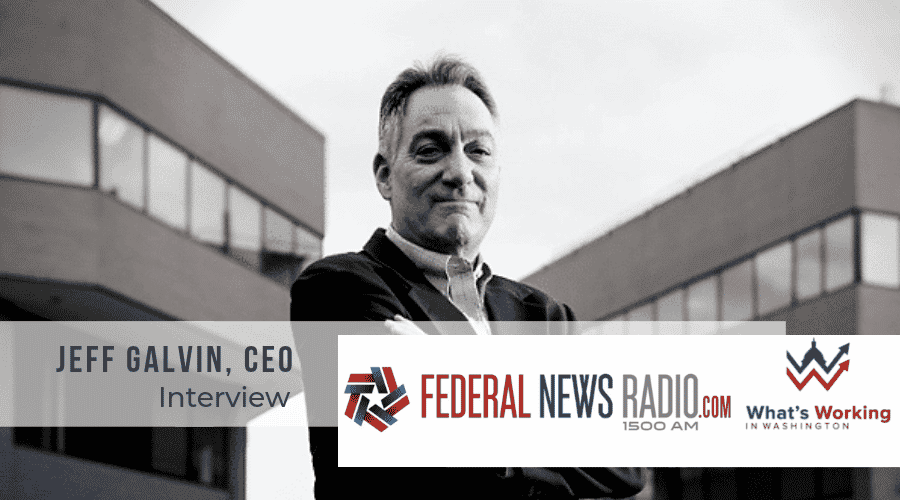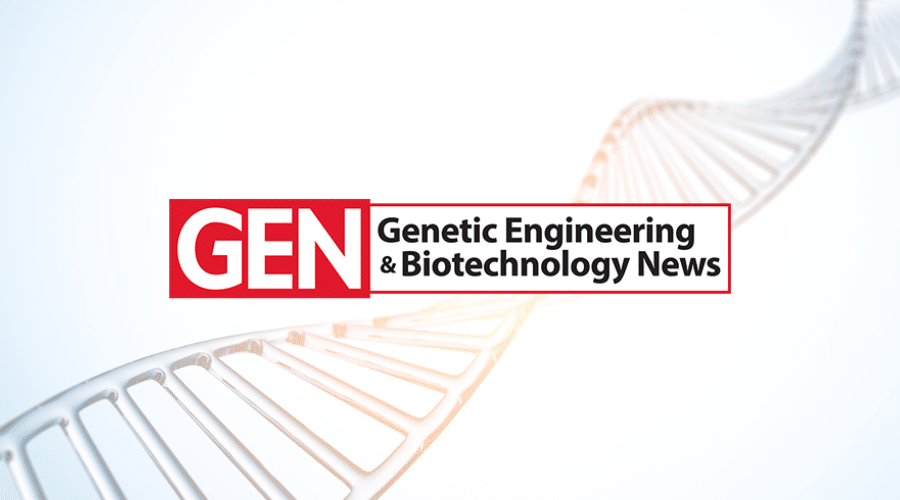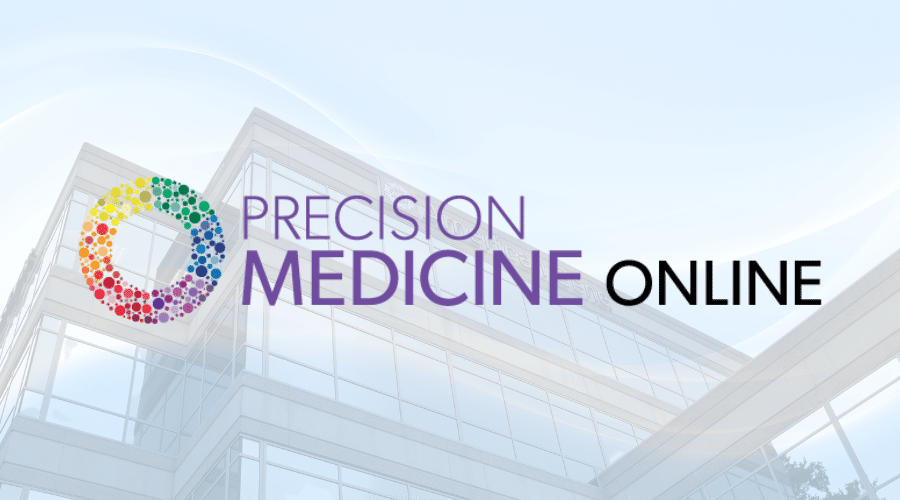Gene Technologies are Making Strides to Cure Terminal Illnesses


Published By: What's Working In Washington | Federal News Network Written by: Barbour Ulrich
Even if you work in the D.C. region, you may not be privy to a world-changing industrial revolution happening right now, in places around the world. To talk about that is Jeff Galvin, CEO and founder of American Gene Technologies. Galvin is an expert on how innovations in gene research can begin to change the world.
GALVIN: For twelve years, I’ve been in gene and cell therapy, and I have to tell you two things: one is, there’s a revolution in medicine going on right now, right under our feet, that almost nobody knows about. The second thing is, it’s happening right here in the D.C. Metro area. Some of the strongest companies in this area are actually just north of here in Maryland, and Rockville, and I think, actually, the Baltimore-Rockville-D.C. area, even into Virginia. This region is going to be huge in something that’s going to completely transform medicine. Here’s what I mean by that: there haven’t been a lot of revolutions in medicine recently.
The really big changes were antibiotics and vaccines. This is bigger than both of those, because what we’ve learned to do is to crack open viruses and convert them. Think about this in terms of your computer. We convert those viruses to updates. In other words, we take these things that will invade your body, and reprogram your cells to do all sorts of horrible things, you know, we’re talking about not just colds and flus, but HIV. Goes into your body, reprograms your cells and takes over your body over time. But we can go ahead now and split open these deadly viruses, pull out the viral DNA, and put in whatever DNA we want. These are little software updates to the organic computer that is the human cell.
And that’s all you are, is a giant stack of collaborating organic computers that makes you you. Every single cell runs off the same thing: DNA. That DNA is your operating system, and just like your computer, not every computer is running the same parts of the operating system. That’s why you can have so many different types of cells.
ABERMAN: So are you describing what someone on the street would say is genetic therapy? Is that we’re talking about right now?
GALVIN: Well, we call it gene and cell therapy right now, but I call it gene technologies, and the reason is that I think gene and self therapy is just the beginning. We’re in the punch card days of reprogramming the human computer, to eliminate disease.
ABERMAN: And you’re a computer guy, you were at Apple, and various places. So, you see a real strong analogy here.
GALVIN: Oh, absolutely. I mean, this parallels every technological revolution. So here’s the bottom line this, it’s following something that we used to call, back and Silicon Valley, Moore’s Law. In other words, that the power of this technology will double, and the cost of it will half, every year. In fact, when you look at what’s happening in gene and cell therapy, it’s actually becoming efficient at a faster rate than even computers did. You look at the cost of genetic sequencing, it dropped off way faster than it would have if it was following Moore’s Law. And that’s true in all of the equipment, and everything else, that’s used in our industry, sort of the picks and shovels of what we do. It actually, in some ways, is driven by the previous computer revolution, because computers, and robotics, and all these things, are being used to accelerate this gene and cell therapy revolution.
ABERMAN: Healthcare is one of those really emotional things. I’m sure you get asked this question a lot, but: what’s it it for me? Why should I care about this?
GALVIN: Well, how about cures for cancers? How about if I tell you that I believe, I firmly believe—I’ve been in this for twelve years, so I’ve seen the patterns. We’re working on cures ourselves, at American Gene Technologies, that we think are going to really change the outlook for terminal cancers. I will make a prediction here today that, in ten years, we’ll have a look-back moment where we’ll say: how did we live without gene and cell therapy? Sort of the way you think about your cell phone right now: how did I live without that? But the fact is, you can live without your cell phone, but in ten years from now, gene and cell therapy will have taken most of the terminal cancers off the table. We’ll be treating them like chronic diseases.
I really believe that’s true. We have something coming out in 2020 that we think will be a cure, or you know, something that’ll knock back liver cancer for five years or more, and then you could just take it again if liver cancer came back. It wouldn’t involve surgery, radiation, or chemotherapy, because what we would do is, we’d put a virus into that cancer that would make it so attractive to your immune system, that your immune system would stimulate to a level where it just melts it away. We’re already seeing this in animal models. We’re not the only company doing this. We’ve got stuff that I think is really exciting. We’ve got a cure for HIV that we think will go into the clinic this year. And there are 6,000 monogenic diseases out there that, if don’t have one of them, you probably haven’t heard of some of them before. Those will all be addressable with the current, state-of-the-art gene and cell therapy.
ABERMAN: When I’ve had other people in the studio, or I talk with them elsewhere, about the emerging industrial trends, like artificial intelligence for example—I’ve been hearing that artificial intelligence is right around the corner for 25 years now. What is it that’s different about what’s going on with the human genome, and the things you’re talking about, that makes this a much more tangibly likely change to occur?
GALVIN: The artificial intelligence thing, I think that’s sort of all how you look at it. You know, we’re sitting here in Washington D.C., I’m still concerned about real intelligence. But why do I believe in this, knowing it takes so long for other technologies to fan out? It’s really because of the twelve years I’ve been in it. It really has been following this pattern where the efficacy of what we’re doing is on such an incline every year, and the range of things that we can address with our technology, just the stuff at American Gene Technologies, has become broader and broader at a geometric rate, and that the costs have fallen exactly as I thought they would when I got into this twelve years ago. And now, you know, I’ve got twelve years of experience. That’s why I believe in this.
I think that the cures are already coming. You probably know this already, but there’s something called CAR T, and you’re going to see more of these, but two of them are already approved. In terminal versions of some liquid cancers, blood cancers, these are having an 80 percent plus cure rate. So, people that were absolutely a goner are now walking around living because of, basically, gene and cell therapy. This is just one example of it, and it’s not even the best example. I think it’s just an early example, like I said, we’re in the paper tape or punch card days of reprogramming the human computer, the human cell, but this is going to get so much more sophisticated, and it’s going to happen fast.
ABERMAN: Last question before I let you go, Jeff. Is there something about the D.C. region that makes it particularly suited for this revolution?
GALVIN: Absolutely. Since we are here in D.C., one of the things that I really need to highlight is the amount of public investment in this type of science. Our company was born out of NIH research cracking all of the details of HIV, and you know, we didn’t pay a dime for it. It was already established, these viral vectors that are, essentially, a foundation technology of everything that we do. Well, the D.C. region has 71 of these scientific institutions that are spread out around this area, and they’re leaking technology and highly trained people like 71 Xerox Parks in Silicon Valley. That is something that’s special about this area. You’re close to the FDA, and it’s just an amazing region for doing these things.
ABERMAN: Well, Jeff, first of all, I want to thank very much taking the time to come in.
GALVIN: My pleasure. Thank you for having me.
ABERMAN: You were listening to Jeff Galvin, CEO and founder American Gene Technology. There’s a revolution going on, you learned about it here first.
Copyright © 2019 Federal News Network. All rights reserved.
View The Original Article
This page is a replication of the original content. To respect the original publisher, this page is not indexed by search engines. The original article can be viewed by clicking the button below.





